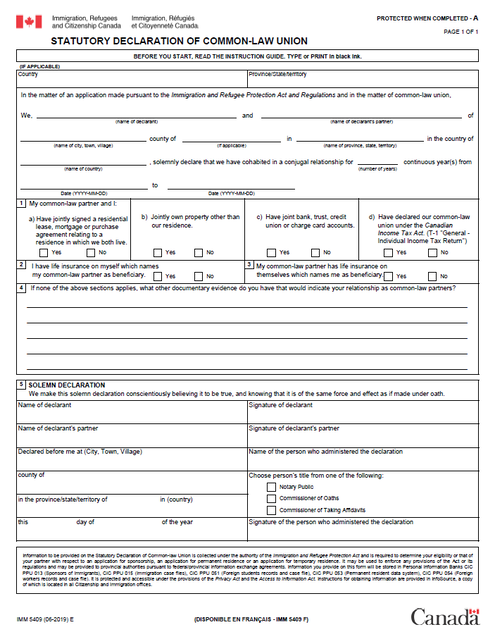Canada Immigration Common Law Spouses
> Library > Common Law
On April 1, 1997, the Immigration Regulations were revised to define "spouse" not only as a person "of the opposite sex to whom that person is joined in a marriage .... recognized ... by the laws or the country in which it took place", but also to include such couples "cohabiting ... in a conjugal relationship ... for a continuous period of at least one year". A literal interpretation of this expanded definition recognizes multiple wives.
However, the new definition continues to exclude a same sex partner. Given the Federal Court's rulings that the Constitutional guaranty of "equal protection under the law" prohibits discrimination on the basis of sexual orientation, a legal challenge to the exclusion of same sex partners would likely prevail.
Nevertheless, there is a simpler approach for a same sex partner to immigrate. Subsection 11(3) of the Immigration Regulations permits a visa officer to admit as an immigrant a person who, although failing to meet selection criteria, appears likely to become "successfully established in Canada". Thus, if the sponsor has sufficient income to sponsor the potential immigrant (or, in the case of an applicant for immigration, meets selection criteria), the "spouse" may be landed "by discretion" or on "humanitarian or compassionate" grounds. Although a visa officer may use "discretion" where the couple has been cohabiting for at least one year, this is done on a case by case basis.
There are policy provisions to guide visa officers when assessing common law spouses (includes same sex partners). The Overseas Processing Immigration Manual provides as follows at Chapter 1 "General Procedural Guidelines" at section 4 dealing with "Principal Applicants and Dependents":
"Common law spouses and same sex partners do not fall under the definition of spouse. They must meet requirements for admission as independent immigrants whether they are applying to join a spouse/partner in Canada or accompanying a principal applicant.
They may qualify for selection by earning enough points for assessment factors in Schedule I (of the Immigration Regulations, 1978). If not, you may recommend selection on discretion [R11(3)].
If they cannot qualify in either of these ways, consider whether for humanitarian and compassionate reasons, the program manager might use the delegated authority (R2.1) to waive selection criteria [R8(1)(a)].
Where there is evidence of a relationship, you may recognize undue hardship could result from separation of common law spouses or same sex partners.
When you identify humanitarian and compassionate factors, you may note as well if the relationship was entered into primarily to gain admission to Canada." (i.e. a relationship of convenience)."

